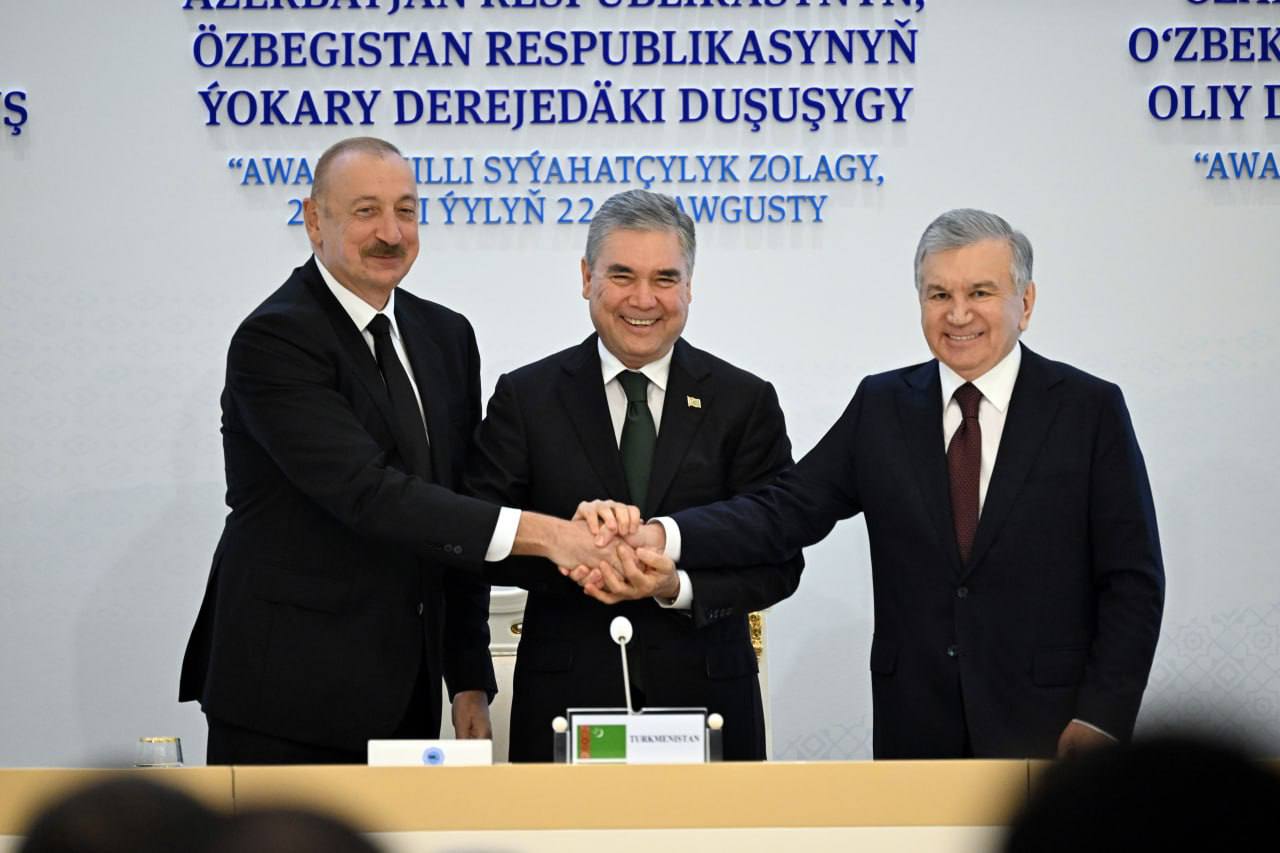Following the negotiations, President Shavkat Mirziyoyev, National Leader of the Turkmen people, Chairman of the Halk Maslahaty Gurbanguly Berdimuhamedov, and President of the Republic of Azerbaijan Ilham Aliyev adopted a Joint Statement, according to the press service of the head of our state.
In the presence of the leaders, memoranda of cooperation were also signed in the fields of transport and logistics, shipbuilding, and civil aviation, along with an Agreement on Cooperation between commodity exchanges, among other documents.
Subsequently, the leaders delivered statements to the media on the outcomes of the negotiations.
The President of our country highly commended the fruitful results of the meeting, which vividly demonstrated a firm political will to deepen strategic partnership in the interests of the peoples of the three states.
It was noted that during the negotiations, particular attention was paid to the development of transit corridors, including the effective use of the capabilities of the Turkmenbashi and Baku ports, and the joint development of modern logistics infrastructure.
Plans were discussed in detail to integrate existing and prospective routes in the region to deepen the integration of national transport systems. It was emphasized that Uzbekistan advocates for a coordinated policy in this area.
Primarily, this concerns issues of tariff policy and the creation of favorable conditions for businesses entering international markets.
Agreements were reached on joint work on projects for the development of logistics infrastructure and ferry services across the Caspian Sea.
Furthermore, opportunities for cooperation between the three countries in the energy sector were considered, including the development of hydrocarbon deposits and the export of generated electricity.
The agenda of the negotiations focused centrally on the tasks of significantly increasing trade volumes and expanding the scope of industrial cooperation.
It was emphasized that measures will be taken to stimulate mutual supplies of quality products from national producers and to create conditions for the implementation of new investment projects involving the potential of the regions of the three countries.
The leaders agreed to expand cooperation in the rational use of water resources and countering environmental threats. In addition, a joint program in the field of tourism and cultural exchanges will be adopted.
The implementation of the decisions and documents adopted will be carried out by ministers on the basis of a “roadmap.”
In conclusion, the head of our state emphasized that the current historic meeting will serve to deepen mutually beneficial cooperation between the three countries, will contribute to the creation of sustainable trade, transport and energy corridors, and will accelerate the processes of regional integration.

